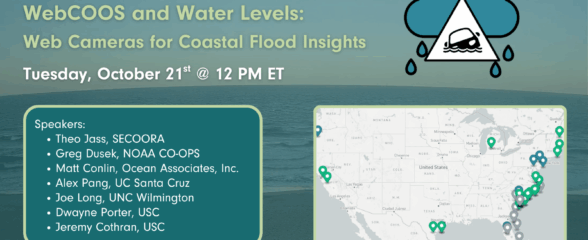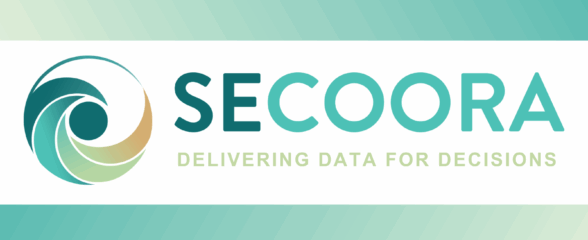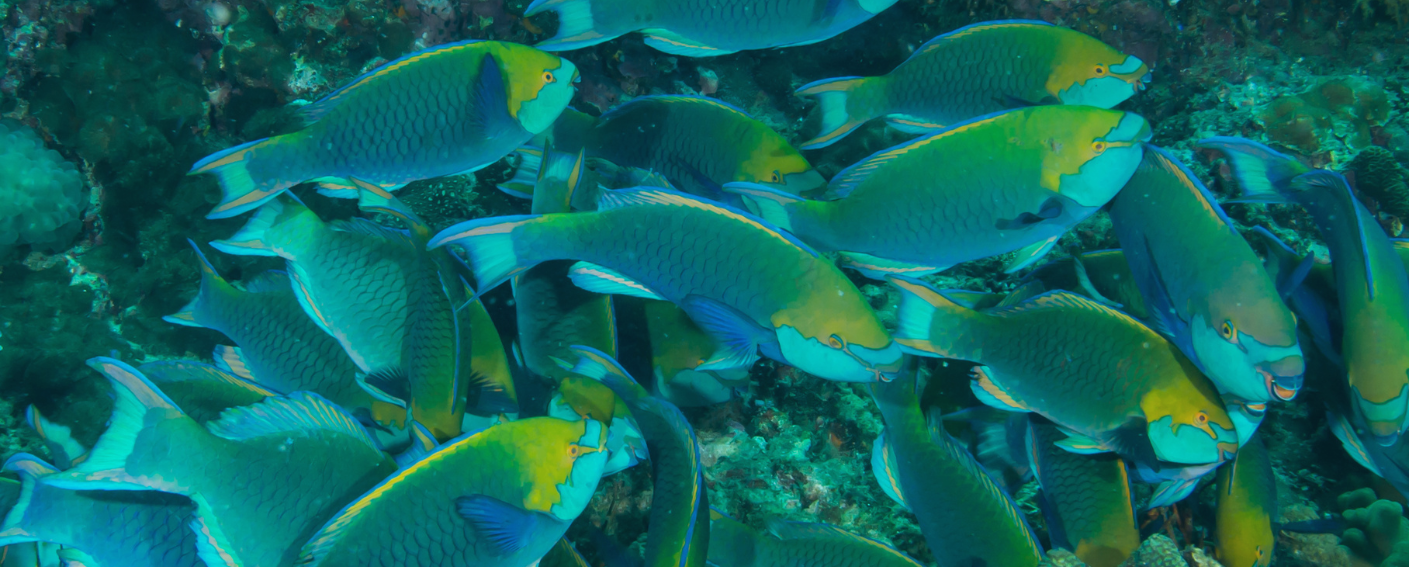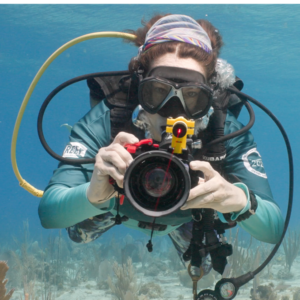Join the webinar now: https://meet.goto.com/secoora/secoorawebinarsmile
Join us Tuesday, June 24th at 12 PM ET for the June installment of the SECOORA Coastal Observing in Your Community Webinar Series! This month, we will hear from Dr. Jennifer Loch from Reef Environmental Education Foundation (REEF). She will discuss the SMILE (Size Matters: Innovative Length Estimates) project, an initiative to incorporate fish length data into the Volunteer Fish Survey Project and supplement fisheries stock assessment data using camera technologies.
Webinar Abstract
The SMILE project (Size Matters: Innovative Length Estimates) is a collaborative citizen science initiative led by Reef Environmental Education Foundation (REEF) that empowers recreational divers to contribute to fisheries science. Using a low-cost, waterproof camera equipped with a mounted laser, trained volunteers capture underwater images of reef fish, which are then processed through an AI workflow to estimate fish lengths in situ. This non-invasive method provides length data on ecologically and economically important reef species to help fill critical data gaps for fisheries stock assessments. The data collected by SMILE complements REEF’s existing Volunteer Fish Survey Project to offer a more comprehensive picture of reef fish communities and populations.
Beyond the technical components of the project, SMILE includes a formal social science survey developed in collaboration with Colorado State University and Florida Fish and Wildlife Conservation Commission to better understand the motivations, barriers, and experiences of citizen scientists. Insights from the survey will help refine project design, broaden engagement, and inform the use of conservation technology in community-based marine research. SMILE is funded by NOAA’s Coral Reef Conservation Program in collaboration with South Atlantic Fishery Management Council, University of San Diego and Scripps Institution of Oceanography, SECOORA, and Axiom Data Science/Tetra Tech. This innovative project invites the public to play a hands-on role in marine conservation by supporting fisheries management.
View and download the SMILE Infographic here.
Meet the Speaker
Dr. Jennifer Loch is a Research Associate at Reef Environmental Education Foundation, a non-profit, citizen-science based marine database organization. She works directly with REEF’s Conservation Science program to coordinate the SMILE (Size Matters: Innovative Length Estimates) project, an initiative to incorporate fish length data into the Volunteer Fish Survey Project and supplement fisheries stock assessment data using camera technologies. Her work is motivated by advancing marine conservation of fishes for sustainable populations, thus healthier ecosystems. She enjoys engaging with the public, anglers, and citizen scientists to better understand their knowledge of marine resources to ultimately further conservation through collaboration. Dr. Loch holds a B.S. in biology from Florida State University, an M.S. in marine biology through the Three Seas Program at Northeastern University, and a Ph.D. from the University of Central Florida.
Related news

SECOORA Webinar | WebCOOS and Water Levels: Web Cameras for Coastal Flood Insights
On October 21st at 12 PM ET, SECOORA is hosting a webinar with investigators from the Webcam Coastal Observation System (WebCOOS) project team and the WebCOOS Project Manager. Web cameras are a low-cost technology that can be used to document flooding impacts to coastal communities. Register here.

SECOORA Funding Opportunity Announcement: Letters of Intent Solicitation
SECOORA will submit a coordinated regional proposal in response to the anticipated FY 2026 Implementation of the U.S. Integrated Ocean Observing System (IOOS) funding opportunity. Letters of Intent to be considered for inclusion in SECOORA’s full proposal are due September 9, 2025.

SECOORA Hosts the First Surface Elevation Table (SET) Community of Practice Virtual Workshop
The SECOORA SET Workshop was virtual on July 17, 2025. More than 50 Community of Practice members and stakeholders joined this collaborative workshop to discuss SET monitoring, coastal resilience, and data-driven decision making in the Southeast.


